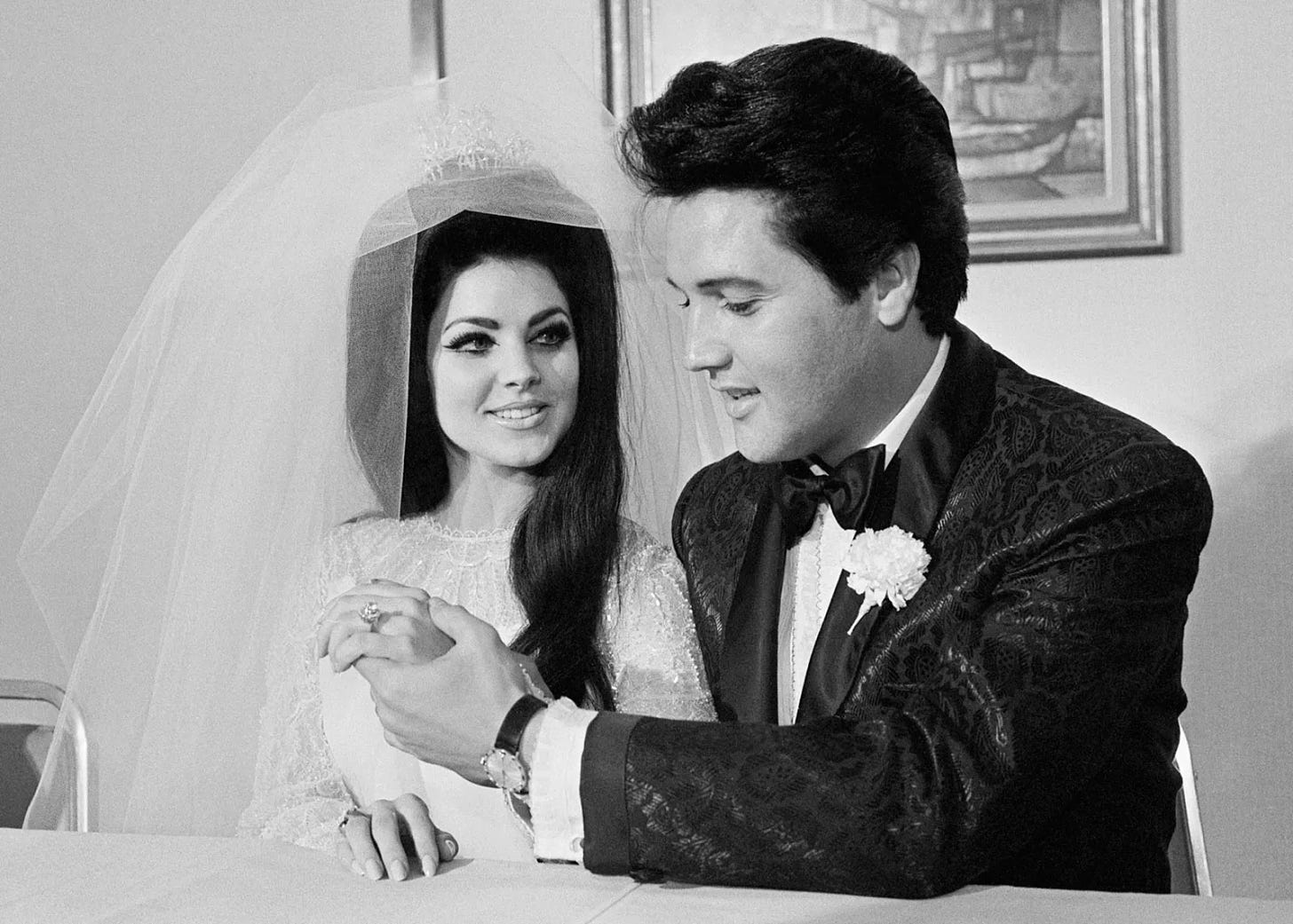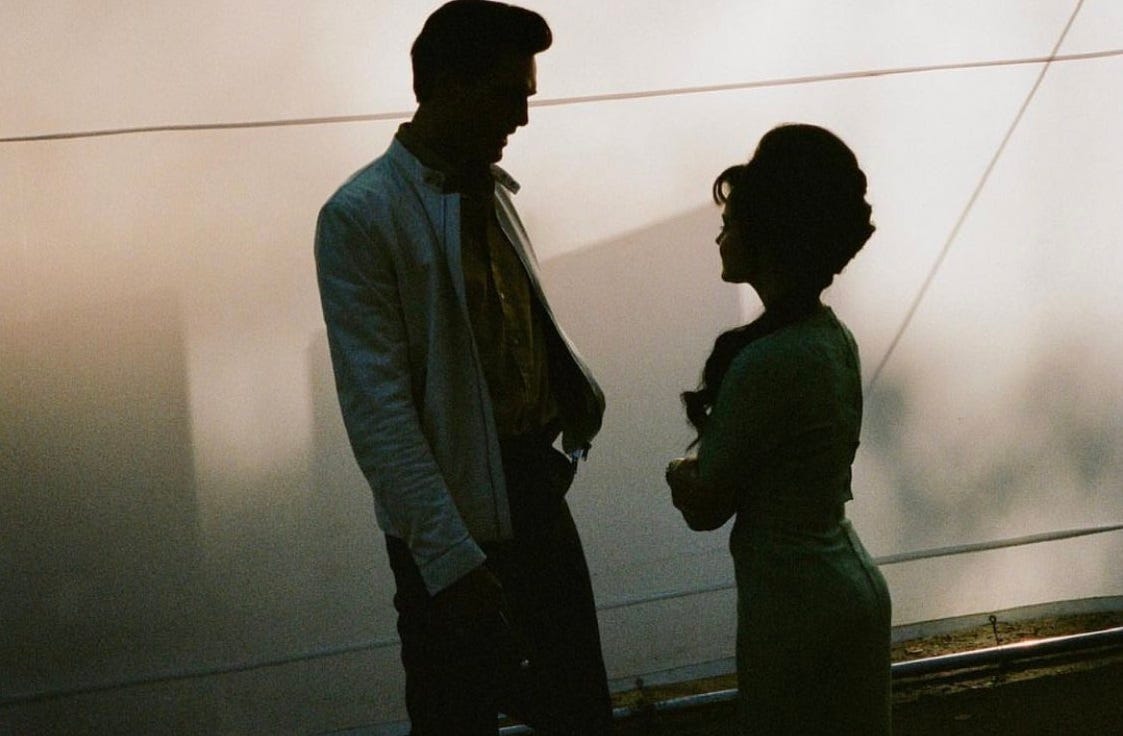
I liked this movie much more than the Baz Luhrmann version mainly because of its length but very much because of its center on Priscilla and her budding womanhood in the limelight of a man who promised a literal child the world— but more importantly, his love.
Beautiful, riveting, stylistically championing women’s voices in a medium that has never been kind to her; Sofia Coppola’s retelling of the Elvis Presley American narrative takes a look at his steadfast companion in this whirlwind of scummy showbiz: Priscilla Beaulieu.
I feel to be in poor judgement having seen this movie, half of Luhrmann’s (which was long and drawn out, I couldn’t make it through without an umpteen amount of potty breaks despite the gorgeous visuals ;-;) and not having read Priscilla’s memoir Elvis and Me.
Coppola’s version is the complete antithesis to Luhrmann’s portrayal of the King of Rock, attempting to draw from Priscilla’s experiences from her book. Firstly by taking a look at his one and only wife and her lived experience, an experience of a woman that could only be told with as much depth and emotional nuance by a woman. While Elvis had his hero’s rise and fall in Luhrmann’s, what we see with Coppola is a gentle, emotional ride of love and motherhood and the budding of womanhood, the tentpoles of what comprises a heroine’s journey.
Maureen Murdock was appalled when she asked Joseph Campbell (yes, that Joseph Campbell) what the woman’s journey would be, and he replied with “Women don’t need to make the journey. In the whole mythological tradition, the woman is [already] there. All she has to do is to realize that she’s the place that people are trying to get to.”
As a trained psychologist, Murdock found this fundamentally incorrect and coined the heroine’s journey, which models a similar redemption arc to Campbell’s, but with a focus on emotional depth and acceptance rather than actionable events.
Priscilla is a heroine’s journey, through and through.
While some claim this movie to be a slap in the face to Elvis’ reputation, having little to no plot, vignetted events building the majority of this film, highlighting only the worst of Elvis, I heartily disagree (and isn’t that the beauty of art? We can disagree. We can agree. We can make better art together, but it gets us talking to one another and I think that is amazing).
Elvis already had his moment of fame, back in the 1960s, but also with Luhrmann’s representation of him. Priscilla isn’t his wife’s call to fame, but rather her defense of herself in a world where none see the fault of a 24 year old wooing a teenager.
The Graceland Estate (Presley’s home and living representation) and the couple’s late daughter Lisa Marie Presley wrote scathing comments about the misrepresentation of the late musician in this movie, but Priscilla herself applauds its approach and representation of her life. It is not meant to pander to the masses about the man they thought they knew, but to show her lived experience as a woman in that time and space, with someone she believed was her one true love and husband.




